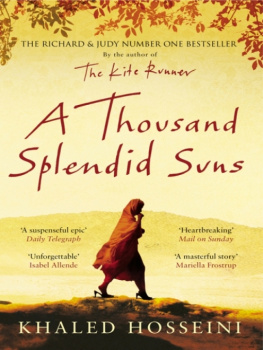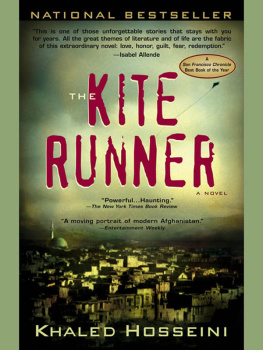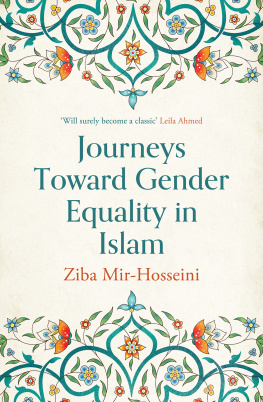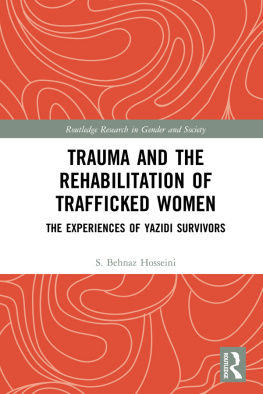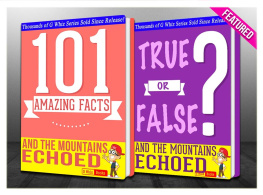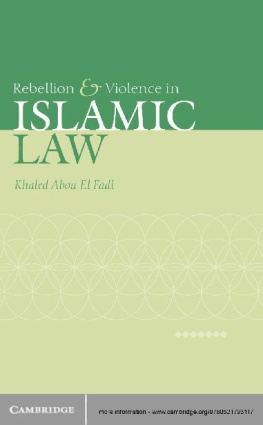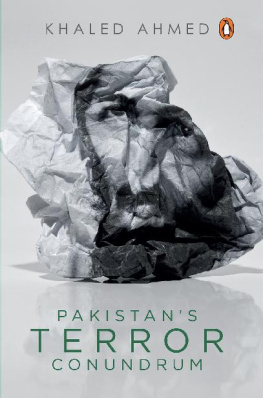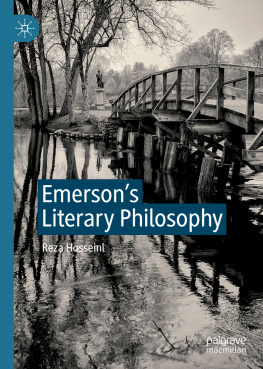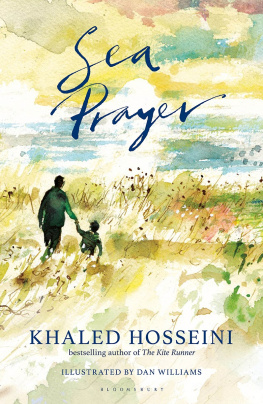Khaled Hosseini - And the Mountains Echoed
Here you can read online Khaled Hosseini - And the Mountains Echoed full text of the book (entire story) in english for free. Download pdf and epub, get meaning, cover and reviews about this ebook. year: 2013, publisher: Bloomsbury Publishing PLC, genre: Art / Prose. Description of the work, (preface) as well as reviews are available. Best literature library LitArk.com created for fans of good reading and offers a wide selection of genres:
Romance novel
Science fiction
Adventure
Detective
Science
History
Home and family
Prose
Art
Politics
Computer
Non-fiction
Religion
Business
Children
Humor
Choose a favorite category and find really read worthwhile books. Enjoy immersion in the world of imagination, feel the emotions of the characters or learn something new for yourself, make an fascinating discovery.

- Book:And the Mountains Echoed
- Author:
- Publisher:Bloomsbury Publishing PLC
- Genre:
- Year:2013
- Rating:3 / 5
- Favourites:Add to favourites
- Your mark:
- 60
- 1
- 2
- 3
- 4
- 5
And the Mountains Echoed: summary, description and annotation
We offer to read an annotation, description, summary or preface (depends on what the author of the book "And the Mountains Echoed" wrote himself). If you haven't found the necessary information about the book — write in the comments, we will try to find it.
And the Mountains Echoed — read online for free the complete book (whole text) full work
Below is the text of the book, divided by pages. System saving the place of the last page read, allows you to conveniently read the book "And the Mountains Echoed" online for free, without having to search again every time where you left off. Put a bookmark, and you can go to the page where you finished reading at any time.
Font size:
Interval:
Bookmark:
The Kite Runner

Read by over 21 million people worldwide
1970s Afghanistan: Twelve-year-old Amir is desperate to win the local kite-fighting tournament and his loyal friend Hassan promises to help him. But neither of the boys can foresee what will happen to Hassan that afternoon, an event that is to shatter their lives. After the Russians invade and the family is forced to flee to America, Amir realises that one day he must return to an Afghanistan under Taliban rule to find the one thing that his new world cannot grant him: redemption.
Unforgettable extraordinary powerful Isabel Allende
A devastating, masterful and painfully honest story Daily Telegraph
A novel of unusual generosity, honesty and compassion Independent
If you have a device with internet capabilities, please click for more information.
A Thousand Splendid Suns

Mariam is only fifteen when she is sent to Kabul to marry Rasheed. Nearly two decades later, a friendship grows between Mariam and a local teenager, Laila, as strong as the ties between mother and daughter. When the Taliban take over, life becomes a desperate struggle against starvation, brutality and fear. Yet love can move a person to act in unexpected ways, and lead them to overcome the most daunting obstacles with a startling heroism.
In case youre wondering whether A Thousand Splendid Suns is as good as
The Kite Runner, heres the answer: No. Its better
Washington Post
If you have a device with internet capabilities, please click for more information.
If you loved The Kite Runner, why not try:
The Kite Runner Graphic Novel

Powerful full of detail, meaning and significance.
As a visual way in to the novel this is a success Paul Gravett
If you have a device with internet capabilities, please click for more information.
For more information about Khaled Hosseini, to download reading guides,
sign up for exclusive offers and find out more about signed, special editions, please visit:
www.bloomsbury.com/khaledhosseini

Bloomsbury Publishing, London, New Delhi, New York and Sydney
Copyright 2013 by Khaled Hosseini and Roya Hosseini, as Trustees
of The Khaled and Roya Hosseini Family Charitable Remainder
Unitrust No. 2 dated February 29, 2012. All rights reserved.
Epigraph copyright Coleman Barks
First published in Great Britain 2013
This electronic edition published in 2013 by Bloomsbury Publishing Plc
Bloomsbury Publishing Plc
50 Bedford Square
London
WC1B 3DP
The moral right of the author has been asserted
All rights reserved
You may not copy, distribute, transmit, reproduce or otherwise make available this publication (or any part of it) in any form, or by any means (including without limitation electronic, digital, optical, mechanical, photocopying, printing, recording or otherwise), without the prior written permission of the publisher. Any person who does any unauthorised act in relation to this publication may be liable to criminal prosecution and civil claims for damages.
A CIP catalogue record for this book is available from the British Library
eISBN 978-1-4088-4244-7
Visit www.bloomsbury.com to find out more about our authors and their books
You will find extracts, author interviews, author events and you can sign up for newsletters to be the first to hear about our latest releases and special offers
This book is dedicated to Haris and Farah,
both the noor of my eyes, and to my father,
who would have been proud
For Elaine
Out beyond ideas
of wrongdoing and rightdoing,
there is a field.
Ill meet you there.
JELALUDDIN RUMI, 13th century
Fall 1952
So, then. You want a story and I will tell you one. But just the one. Dont either of you ask me for more. Its late, and we have a long day of travel ahead of us, Pari, you and I. You will need your sleep tonight. And you too, Abdullah. I am counting on you, boy, while your sister and I are away. So is your mother. Now. One story, then. Listen, both of you, listen well. And dont interrupt.
Once upon a time, in the days when divs and jinns and giants roamed the land, there lived a farmer named Baba Ayub. He lived with his family in a little village by the name of Maidan Sabz. Because he had a large family to feed, Baba Ayub saw his days consumed by hard work. Every day, he labored from dawn to sundown, plowing his field and turning the soil and tending to his meager pistachio trees. At any given moment you could spot him in his field, bent at the waist, back as curved as the scythe he swung all day. His hands were always callused, and they often bled, and every night sleep stole him away no sooner than his cheek met the pillow.
I will say that, in this regard, he was hardly alone. Life in Maidan Sabz was hard for all its inhabitants. There were other, more fortunate villages to the north, in the valleys, with fruit trees and flowers and pleasant air, and streams that ran with cold, clear water. But Maidan Sabz was a desolate place, and it didnt resemble in the slightest the image that its name, Field of Green, would have you picture. It sat in a flat, dusty plain ringed by a chain of craggy mountains. The wind was hot, and blew dust in the eyes. Finding water was a daily struggle because the village wells, even the deep ones, often ran low. Yes, there was a river, but the villagers had to endure a half-day walk to reach it, and even then its waters flowed muddy all year round. Now, after ten years of drought, the river too ran shallow. Lets just say that people in Maidan Sabz worked twice as hard to eke out half the living.
Still, Baba Ayub counted himself among the fortunate because he had a family that he cherished above all things. He loved his wife and never raised his voice to her, much less his hand. He valued her counsel and found genuine pleasure in her companionship. As for children, he was blessed with as many as a hand has fingers, three sons and two daughters, each of whom he loved dearly. His daughters were dutiful and kind and of good character and repute. To his sons he had taught already the value of honesty, courage, friendship, and hard work without complaint. They obeyed him, as good sons must, and helped their father with his crops.
Though he loved all of his children, Baba Ayub privately had a unique fondness for one among them, his youngest, Qais, who was three years old. Qais was a little boy with dark blue eyes. He charmed anyone who met him with his devilish laughter. He was also one of those boys so bursting with energy that he drained others of theirs. When he learned to walk, he took such delight in it that he did it all day while he was awake, and then, troublingly, even at night in his sleep. He would sleepwalk out of the familys mud house and wander off into the moonlit darkness. Naturally, his parents worried. What if he fell into a well, or got lost, or, worst of all, was attacked by one of the creatures lurking the plains at night? They took stabs at many remedies, none of which worked. In the end, the solution Baba Ayub found was a simple one, as the best solutions often are: He removed a tiny bell from around the neck of one of his goats and hung it instead around Qaiss neck. This way, the bell would wake someone if Qais were to rise in the middle of the night. The sleepwalking stopped after a time, but Qais grew attached to the bell and refused to part with it. And so, even though it didnt serve its original use, the bell remained fastened to the string around the boys neck. When Baba Ayub came home after a long days work, Qais would run from the house face-first into his fathers belly, the bell jingling with each of his tiny steps. Baba Ayub would lift him up and take him into the house, and Qais would watch with great attention as his father washed up, and then he would sit beside Baba Ayub at suppertime. After they had eaten, Baba Ayub would sip his tea, watching his family, picturing a day when all of his children married and gave him children of their own, when he would be proud patriarch to an even greater brood.
Font size:
Interval:
Bookmark:
Similar books «And the Mountains Echoed»
Look at similar books to And the Mountains Echoed. We have selected literature similar in name and meaning in the hope of providing readers with more options to find new, interesting, not yet read works.
Discussion, reviews of the book And the Mountains Echoed and just readers' own opinions. Leave your comments, write what you think about the work, its meaning or the main characters. Specify what exactly you liked and what you didn't like, and why you think so.

